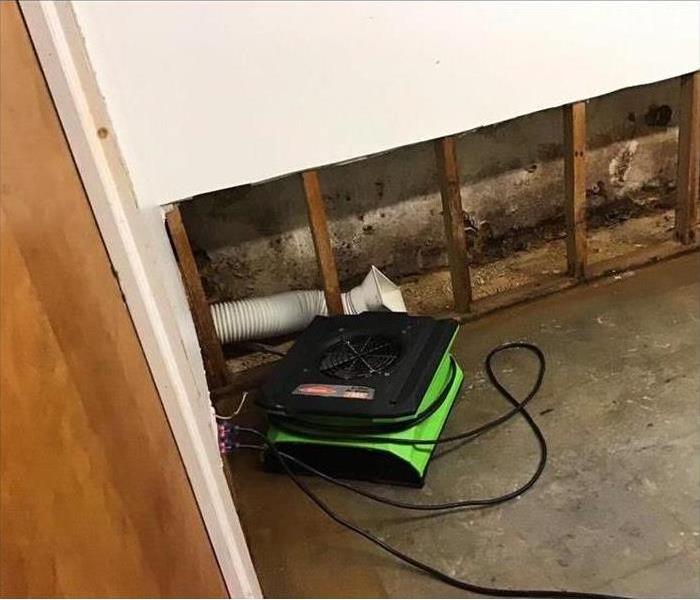What To Do After a Pipe Breaks
11/4/2020 (Permalink)
Consider The Following Steps To Lessen The Damages
Pipes that freeze due to inadequate insulation or poor placement frequently burst and cause havoc. Thankfully, most insurance companies do cover damages caused by bursting pipes. Check with your insurance to see if your business in Doylestown, PA, is covered. If you do ever suffer a burst pipe, there are steps to take to help lessen the damages.
1. Shut Off Water and Electricity
Whenever you encounter any type of catastrophic leak or flooding, shut off the water supply as soon as possible to stop the flow of water. Knowing where your water shut off valve is ahead of time is a good idea. It's not something you want to frantically hunt for in the midst of a flood. You should also shut off the electricity in any part of the building where flooding has occurred.
2. Call a Plumber
Once you've cut off the water and electricity, immediately call a plumber. Bursting pipes due to cold weather are common, and plumbers are often inundated with calls during winter storms. Do not delay in contacting a plumber. Plumbers are specially trained and equipped to safely and reliably fix broken pipes. Plan ahead and research plumbers, electricians, and other tradesmen available in your area who can help in an emergency before you actually need them.
3. Start Cleanup
After a plumber has been contacted and scheduled, begin removing the excess water. Use mops, buckets, towels, and anything you have available to dry the area. Repairing water damage can become costly and complicated. If water is not removed quickly, mold and mildew become a threat. An expedient cleanup aided by a restoration specialist after water damage helps to lessen the occurrence of mold growth and keeps total damages low.
Bursting pipes are caused when water freezes and expands. Weak pipes that are poorly insulated are most susceptible to this problem. Pay attention to your water flow in colder months and act quickly if you suspect that your pipes might be frozen.





 24/7 Emergency Service
24/7 Emergency Service
